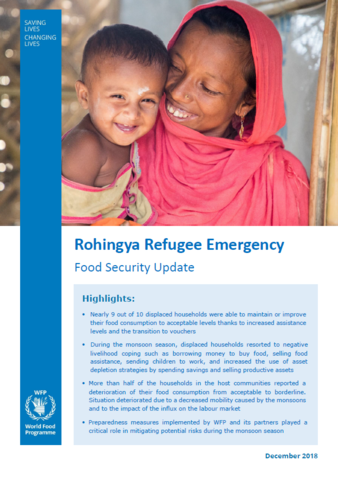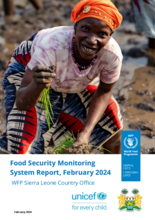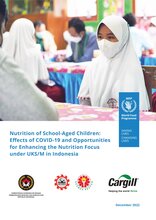
- Nearly 9 out of 10 displaced households were able to maintain or improve their food consumption to acceptable levels thanks to increased assistance levels and the transition to vouchers
- During the monsoon season, displaced households resorted to negative livelihood coping such as borrowing money to buy food, selling food assistance, sending children to work, and increased the use of asset depletion strategies by spending savings and selling productive assets
- More than half of the households in the host communities reported a deterioration of their food consumption from acceptable to borderline. Situation deteriorated due to a decreased mobility caused by the monsoons and to the impact of the influx on the labour market
- Preparedness measures implemented by WFP and its partners played a critical role in mitigating potential risks during the monsoon season
| Document | File |
|---|---|
| Food Security Update, December 2018 |
PDF | 2.61 MB
Download
|


